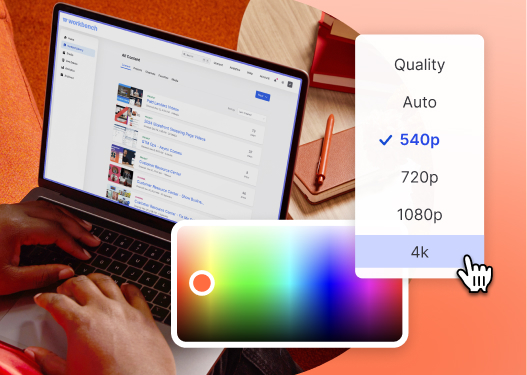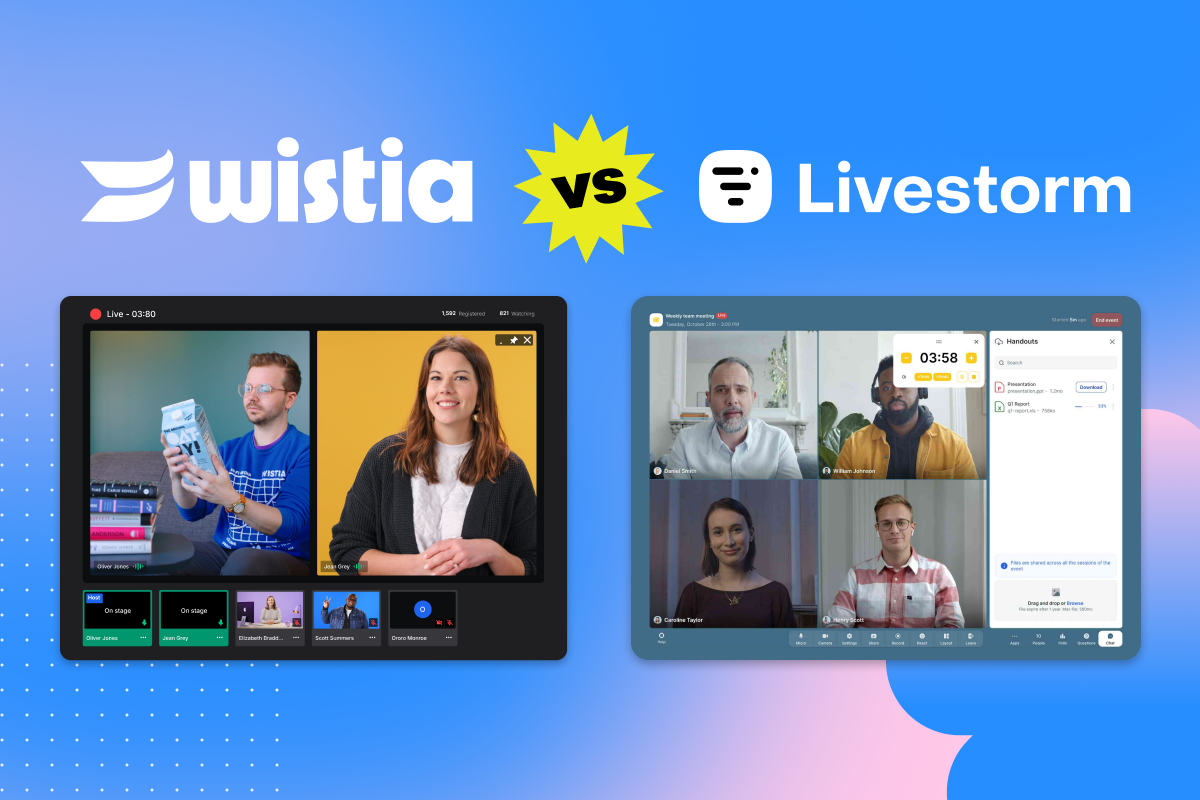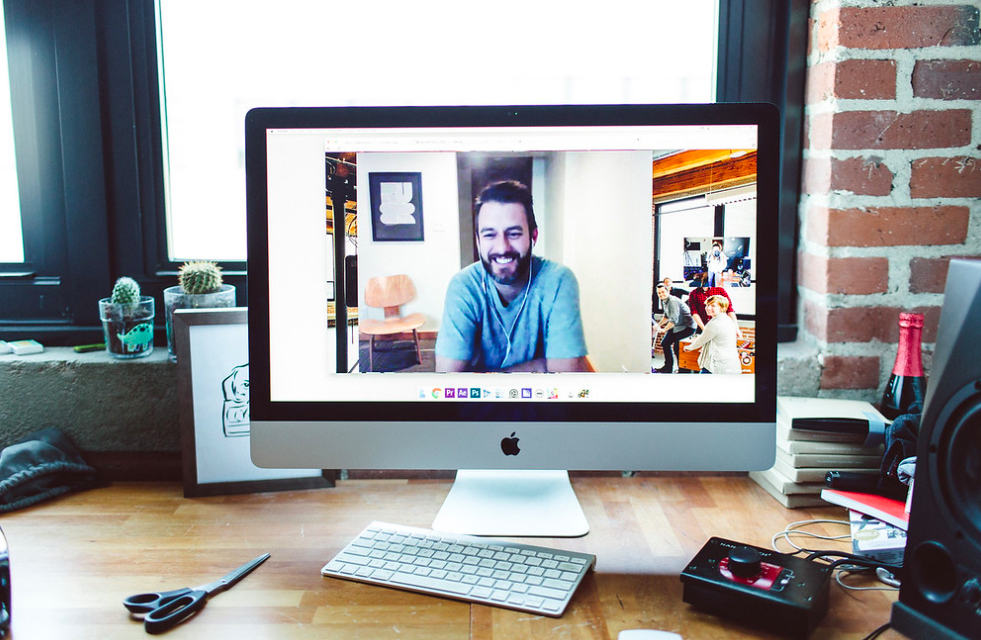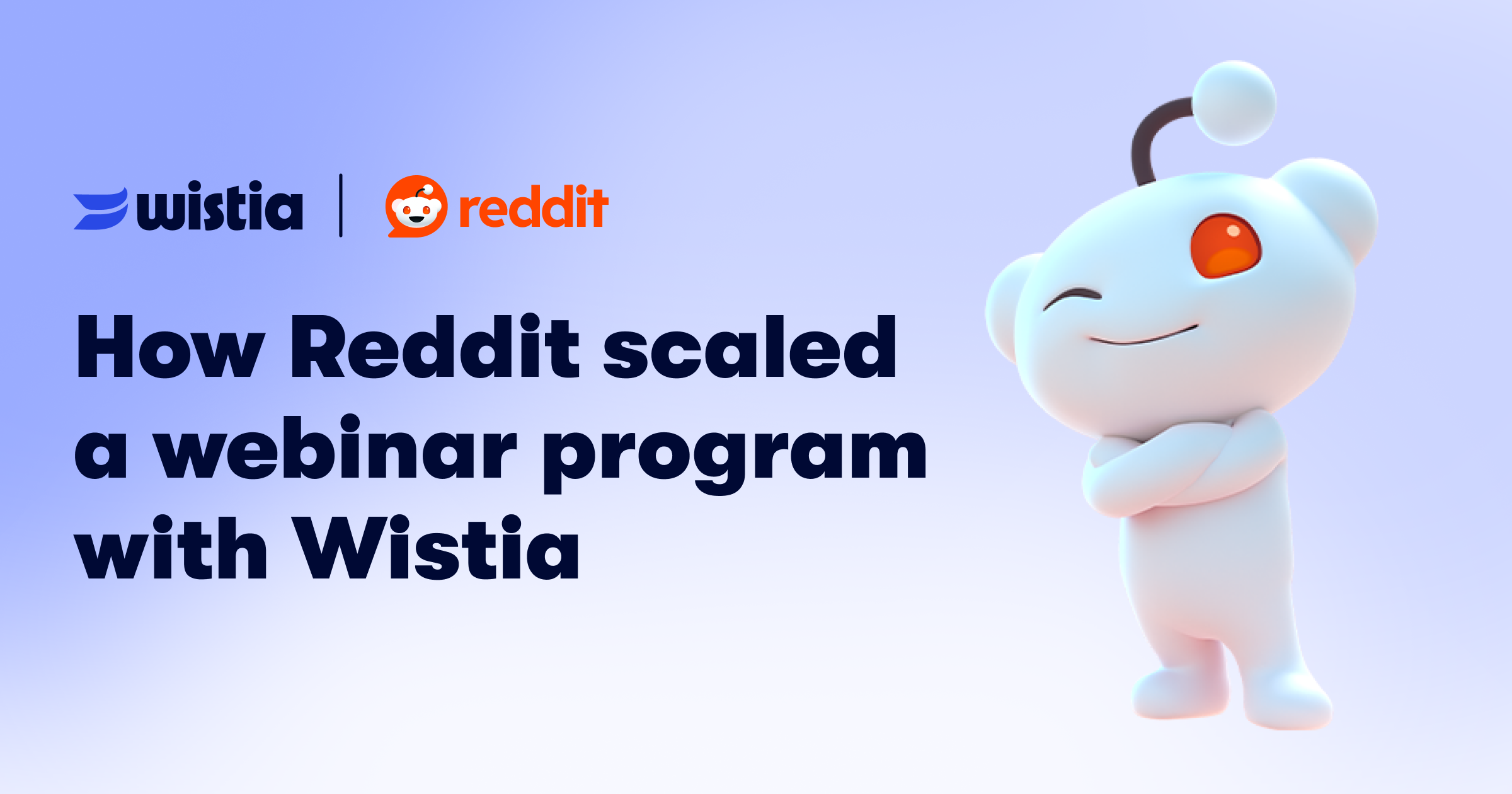5 Companies That Are Investing Deeply In Branded Studios
January 25, 2021
Topic tags
The demand for quality content is at an all-time high. In 2020, global consumers doubled the average amount of time they spent each day consuming content. Consumption is up across every channel, including social media, online news, and streaming services like Netflix.
With so many people craving online education and entertainment, there’s no better time for companies to invest in creating their own binge-worthy content.
Brands across the spectrum, from B2C and SaaS, have already taken note. Over the past few years, many companies have invested in building in-house production teams to deliver podcasts, documentaries, video series, and even feature-length films. These in-house studios have allowed companies to create content that’s meaningful to their audience and build brand affinity — often at a fraction of the cost of hiring an agency for the same work.
“These in-house studios have allowed companies to create content that’s meaningful to their audience and build brand affinity — often at a fraction of the cost of hiring an agency for the same work.”
Want to create your own binge-worthy brand series? Learn how these five companies launched in-house studios to create compelling content.
Red Bull: Taking risks that pay off
Red Bull is known for taking risks and being ahead of the curve, and their branded content is no exception.
The energy drink company launched Red Bull Media House back in 2007. Their early adoption of in-house media has more than paid off with award-winning, globally-distributed content that includes print, TV, audio, and over 1,200 events every year.
Red Bull Media House focuses on attention-grabbing content that covers sports, lifestyle, and culture. Their most popular content often highlights extreme sports stunts.
In 2012, they even broke several World Records with Red Bull Stratos when skydiver Felix Baumgartner climbed to the stratosphere in a helium balloon and freefell an estimated 24 miles back down to earth. Millions viewed footage of the jump! Baumgartner became the first human to break the sound barrier without an engine, and Red Bull cemented its place in the collective imagination as the brand that made it happen.
Red Bull Media House has used their unique content and partnerships to create an empowering brand narrative. More than just an energy drink, Red Bull is forever associated with extreme sports, daredevil risks, and the limitless potential of human achievement.
Pro-tip: Take risks
Red Bull’s head-first dive into creating in-house branded content is proof that taking risks can pay off in a big way — but you don’t need to organize a space jump to stand out. Start small by really understanding what your audience craves, and then come up with a few creative ideas on how to push the envelope to stand out from the crowd.
Mailchimp: Staying relevant
Email marketing platform Mailchimp launched their branded studio, Mailchimp Presents, in 2019. The studio ramped up its content production quickly and now has dozens of podcasts, films, and video series that speak to the brand’s various audiences.
Many of Mailchimp’s shows highlight the struggles and journeys of entrepreneurs or business owners through a broad lens. Their content includes shows like:
- All in a Day’s Work, an animated comedy series about the ups, downs, and sometimes-painful truths of starting and running a small business
- Going Through It, a podcast where host Tracy Clayton interviews famous women about pivotal moments in their lives
- Werrrk!, a reality TV show from the creators of Queer Eye where small businesses get a complete makeover
Mailchimp is known for its creative marketing and for being an early adopter of podcast advertising: the company was the sole sponsor of the hit podcast Serial in 2014. But the shift to creating their own podcasts, films, and TV series in-house has allowed the brand to rely less on traditional advertising, build strong brand affinity with their most engaged customers, and even save money, according to Digiday.
So far, the strategy seems to be paying off. The company reported more than one million views and downloads of its shows between January and May of 2019.
Pro-tip: Keep your content relevant
In July 2020, Mailchimp partnered with Vice to produce Essentials, a five-episode series about small businesses and essential workers coping with the COVID-19 pandemic. With their content production in-house, Mailchimp was able to react quickly and put together a captivating show that spoke to the realities their audience was facing. To keep your content relevant, make sure to stay on top of current events and pay attention to what your audience is talking about online.

All-in-one Video Platform
Create, Edit, And Host Videos
ProfitWell: Creating shows for a niche audience
ProfitWell develops products that help SaaS companies reduce churn, optimize pricing, and get a complete picture of their subscription metrics. In the fall of 2019, they launched Recur Network, the first media network dedicated to the subscription market.
The name Recur is a reference to the SaaS industry’s focus on recurring revenue. Since then, they’ve released a variety of shows, podcasts, and books entirely dedicated to the world of SaaS.
In the show Pricing Page Teardown, hosts Patrick Campbell (ProfitWell’s CEO) and Peter Zotto (GM at ProfitWell) pit different pricing models against each other. It includes a mix of more realistic episodes like “Wall Street Journal vs. Bloomberg” and more whimsical ones like “Hobby Teardown: Quilting vs. Knitting.” Other shows include Protect the Hustle, where experts talk about B2B SaaS growth and Boxed Out, which looks at retention strategies from different direct-to-consumer subscription brands.
Pro-Tip: Identify your niche
ProfitWell’s shows manage to take what might be considered dry topics for some viewers — subscription pricing and revenue — and make them fun. Part of why the company pulls this content off is because they have a deep knowledge of their SaaS audience. To create content that truly resonates, you need to focus on finding a niche that aligns with your brand.
“To create content that truly resonates, you need to focus on finding a niche that aligns with your brand.”
Shopify: Making valuable partnerships
E-commerce platform Shopify launched its in-house agency, Shopify Studios, in 2019. The studio describes itself as a full-service film and TV production company, and its content focuses on spotlighting facets of the entrepreneurial journey.
Unlike Mailchimp Presents, which features its content primarily on Mailchimp’s own website, Shopify pushes its shows in front of a mainstream audience. In August 2020, Shopify Studios’ reality series I Quit — which follows entrepreneurs who risk it all when they quit their jobs to build their businesses — premiered on the Discovery Channel. Shopify Studios also announced a partnership with Keeping Up With the Kardashians producer Bunim/Murray to develop Born for Business, a documentary series about disabled entrepreneurs.
In the podcast realm, Shopify’s shows are geared towards different segments of its audience. In Conversation with Shopify Plus is aimed at enterprise customers and features interviews with big names like Steve Madden and Dylan Lauren. Shopify Masters is geared towards small business owners who share lessons they’ve learned about creating and building their businesses.
Pro-tip: Cultivate partnerships
By partnering with a major TV network like the Discovery Channel, Shopify Studios expanded its reach and created a unique opportunity to capture a new audience’s attention with inspiring, relatable content. Partners don’t need to have national television networks, either. Why not start smaller by interviewing a CEO you admire for your company’s podcast, as a quick example.
360Learning: Pulling back the curtain on startup life
When collaborative learning platform 360Learning originally came up with the idea for their docu-series Onboarding Joei — which follows new Director of Content Joei Chan’s first 90 days at the company — they had no idea that the COVID-19 pandemic would further disrupt the already tight production schedule.
But despite the setbacks, 360Learning managed to create the unscripted 13-episode show in just 13 weeks, with a one-person production team and work from home constraints. The series hit over 70k views around the second quarter of 2020, well above the original goal of 10k. Nicolas Merlaud, 360Learning’s Head of Creative Strategy, explains that the challenge was worth it. Viewers became qualified marketing leads, and clients got in touch to tell 360Learning they wanted to use the show as inspiration for their own companies.
Pro-tip: Embrace unexpected changes
Despite the unexpected constraints of COVID-19, 360Learning was able to keep moving forward with their planned series by being creative and flexible. When their company moved to work from home, they shifted to include the lockdown and its constraints in the series episode “Week #5, The lockdown.” By being flexible, Joei and 360Learning were able to deliver binge-worthy content remotely.
You, too, can deliver binge-worthy content
The trend towards branded studios is well on its way as the appetite for content grows, and companies need to diversify the types of content they produce. Take note from these brands and start thinking about the future of your own brand content. A video series or brand podcast can be the first step to building your own network of shows.






